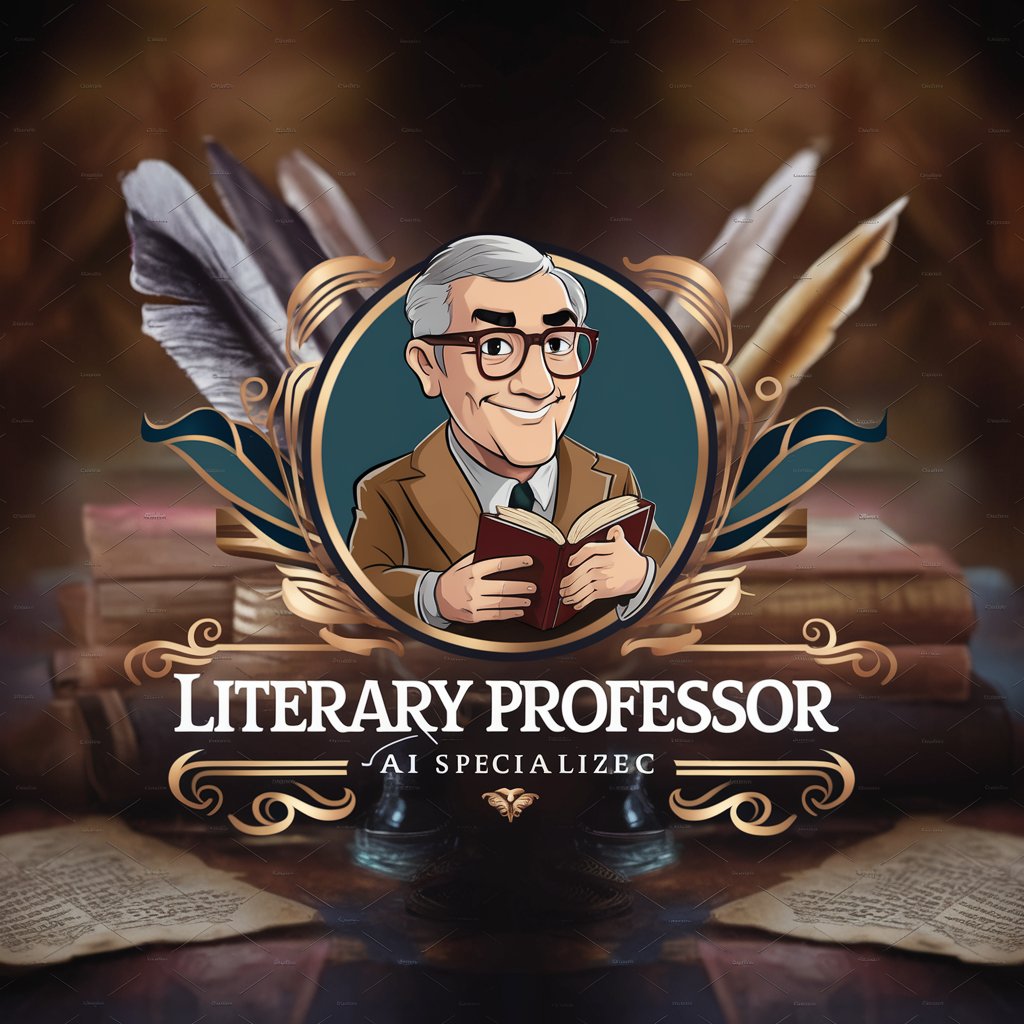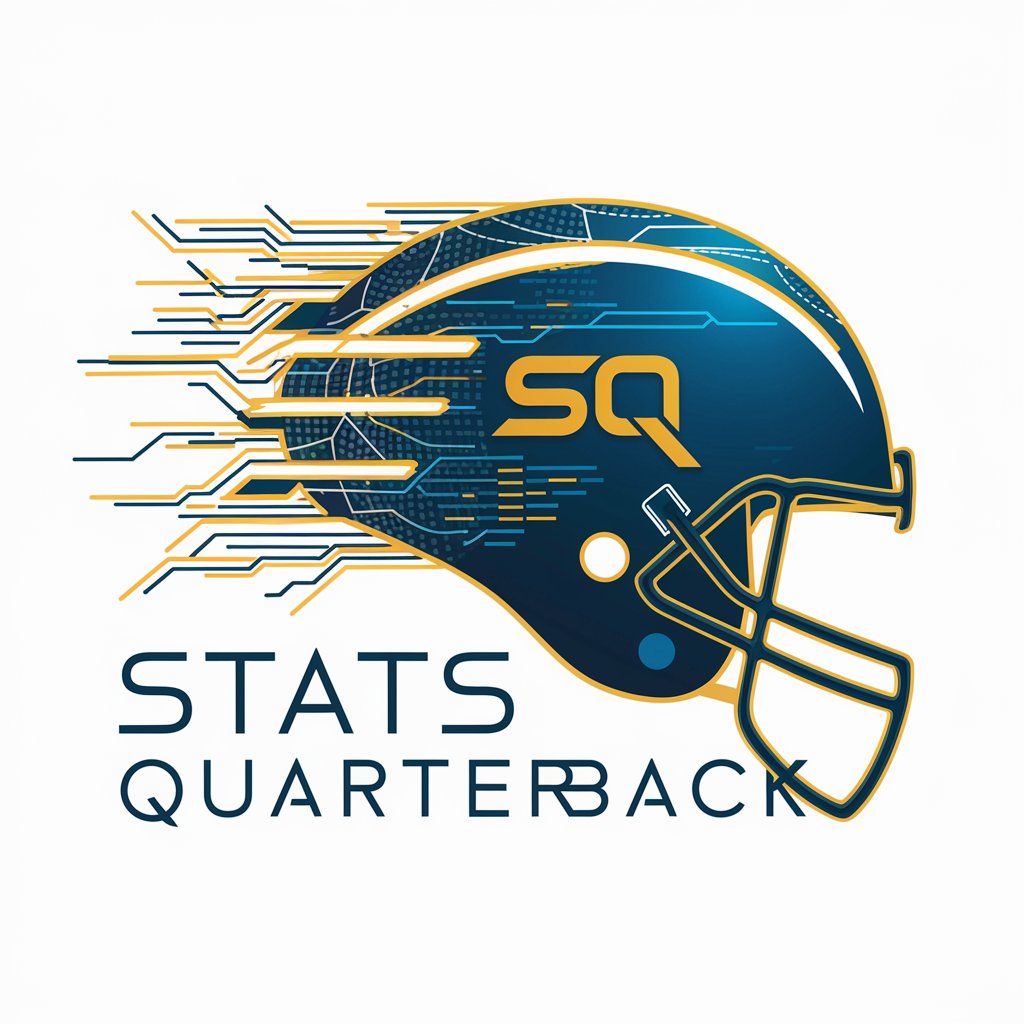Literary Professor - In-depth Literary Analysis

Welcome! How can I assist with your literary exploration today?
Decoding Literature with AI
Can you analyze the themes in...
What are the key historical contexts of...
Provide a summary of the plot of...
Recommend books similar to...
Get Embed Code
Introduction to Literary Professor
Literary Professor is a specialized AI tool designed to assist with literary analysis and comprehension. It operates by interpreting text, discussing themes, providing historical context, and offering detailed insights into literature. This AI is built to handle queries about specific books, characters, or literary concepts and to deliver responses suitable for a variety of users, ranging from students and educators to casual readers and researchers. For example, a student studying Shakespeare's 'Hamlet' might use Literary Professor to obtain a deep dive into the play's symbolism and its reflection of Elizabethan concerns about monarchy and madness. Powered by ChatGPT-4o。

Main Functions of Literary Professor
Literary Analysis
Example
Analyzing the use of symbolism in 'The Great Gatsby'.
Scenario
A user queries about the significance of the green light in F. Scott Fitzgerald’s novel. Literary Professor explains its symbolic representation of Gatsby’s hopes and dreams for the future, linking it to broader themes of the American Dream and disillusionment.
Historical Contextualization
Example
Explaining the influence of Victorian values on the works of Charles Dickens.
Scenario
A user is curious about the social critiques in 'Oliver Twist'. The AI delves into how Dickens used his novel to criticize the societal inequalities and the harsh realities of the poor law system in 19th century England.
Theme Exploration
Example
Exploring the themes of love and prejudice in 'Pride and Prejudice'.
Scenario
An educator preparing a class lesson asks about the central themes in Jane Austen’s novel. Literary Professor provides detailed analysis of how Austen portrays societal expectations, gender roles, and the impact of first impressions, enriching the educator’s lesson plan.
Ideal Users of Literary Professor
Students
Students of all educational levels can benefit from Literary Professor to assist in writing essays, understanding complex texts, and studying for exams on literature. The tool simplifies difficult concepts and offers comprehensive breakdowns that are especially helpful for grasping intricate narratives and themes.
Educators
Educators, including teachers and professors, utilize Literary Professor to create detailed lesson plans, generate discussion topics, and find new ways to engage students with classic and modern texts. The AI's capability to analyze texts across a wide range of historical periods and genres supports educators in expanding their curriculum.
Casual Readers
Casual readers who seek a deeper understanding of the books they read for pleasure will find Literary Professor useful for unpacking the layers of storytelling, character development, and thematic significance, thereby enhancing their reading experience.

How to Use Literary Professor
Start with a Free Trial
Access Literary Professor at yeschat.ai, where you can use the tool without any login or subscription to ChatGPT Plus.
Define Your Inquiry
Prepare your literary questions or topics of interest, whether they are about specific books, authors, or general literary concepts.
Interact with the Tool
Pose your questions directly to Literary Professor and use the custom instructions to specify how detailed or concise you want the responses to be.
Explore Various Functions
Utilize the tool for different literary needs such as text analysis, theme exploration, historical context, and more.
Feedback and Adjustment
Provide feedback on the responses for further refinement and adjust your inquiries based on the information you need.
Try other advanced and practical GPTs
Nearby Wanderer
Discover Hidden Travel Gems

PENNY - Personal Economy Nurturer, Nearly Yoda
Your AI-powered financial sidekick

Stats Quarterback
Transforming Football Analysis with AI

Talk to your SpreadSheet
Simplifying Spreadsheets with AI

Business Card Scanner
Transform business cards into digital contacts effortlessly.

Generate study plan from FILE or WEB
Tailor your learning journey with AI

Outfit Creator
Your AI-Powered Style Assistant

Grammar Checker
Perfect Your Text with AI

coffee shops nearby
Discover Your Next Favorite Coffee Spot with AI

Indian Rasoi
Authentic Indian cooking, simplified.
Nearby Places
Explore places with AI-powered insights.

Omniscient Techie
Demystifying Computer Science with AI

FAQs about Literary Professor
What types of literary analysis can Literary Professor perform?
Literary Professor can perform thematic analysis, character study, plot summarization, and contextual historical insights.
Can this tool help with academic writing?
Yes, it can assist in structuring literary essays, providing citations, and offering critiques on literary works.
Is Literary Professor suitable for younger audiences?
Absolutely, it adapts explanations to be age-appropriate and is capable of simplifying complex literary concepts for younger users.
How can I get the most out of using Literary Professor?
Provide clear, specific questions and utilize the tool's ability to handle a variety of literary queries for in-depth analysis and discussion.
Does Literary Professor support non-English literature?
While primarily designed for English literature, it can provide insights into translated works and discuss international literary forms and themes.
